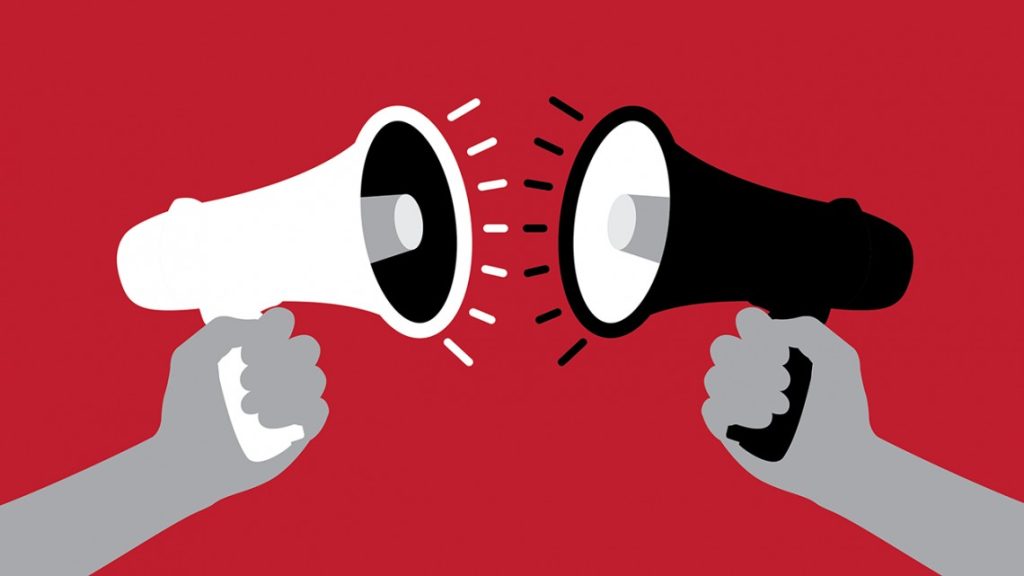The grieving mother’s TikTok videos have sparked a heated online debate surrounding the boundaries of freedom of speech. Many people argue that the mother has every right to express her grief and share her story on a public platform, while others believe that her videos are inappropriate and offensive. Some viewers feel that the mother’s videos are a form of therapy for her, allowing her to cope with the loss of her child in a way that feels meaningful to her.
On the other hand, there are those who believe that the mother’s videos are sensationalizing her grief and exploiting her child’s death for attention. The debate has ignited passionate discussions about the responsibilities that come with freedom of speech, and where the line should be drawn when it comes to sharing personal tragedies on social media. Ultimately, the controversy surrounding the grieving mother’s TikTok videos serves as a reminder of the complexities and nuances of exercising one’s right to free expression in the digital age.

The Origin of the Controversy
The controversy surrounding the origin of the issue can be traced back to a fundamental disagreement among various stakeholders. Some argue that the root cause lies in a lack of clear communication and understanding between parties, leading to confusion and misunderstanding. Others believe that the controversy stems from a clash of values and beliefs, with each side holding firm to their own perspective.
Additionally, historical factors and past grievances may play a role in fueling the controversy, as unresolved tensions and grievances from the past continue to shape current perceptions and attitudes. Furthermore, external influences and pressures from outside sources may also contribute to the controversy, as competing interests and agendas come into play.
Ultimately, the complexity and multifaceted nature of the issue make it difficult to pinpoint a singular origin, as it is likely a combination of various factors that have contributed to the ongoing controversy. In order to address the issue and move towards resolution, it is crucial for all parties involved to engage in open and honest dialogue, seek common ground, and work towards finding mutually acceptable solutions.
The Online Debate
The online debate has become a platform for individuals to express their opinions and engage in discussions on a wide range of topics. It allows people from different backgrounds and perspectives to come together and share their views, leading to a diverse exchange of ideas. The anonymity of the internet provides a sense of freedom for individuals to express themselves without fear of judgment or repercussions.
However, this anonymity can also lead to the spread of misinformation and the proliferation of harmful ideologies. It is important for participants in online debates to critically evaluate the information they encounter and engage in respectful and constructive dialogue. The online debate can serve as a valuable tool for learning and growth, as individuals can challenge their own beliefs and broaden their understanding of various issues.
By engaging in thoughtful discussions and considering multiple perspectives, participants can deepen their knowledge and develop a more nuanced understanding of complex topics. Ultimately, the online debate has the potential to foster meaningful connections and create a sense of community among individuals who may otherwise never have the opportunity to interact.
As technology continues to advance, the online debate will likely play an increasingly significant role in shaping public discourse and influencing societal attitudes. It is essential for individuals to approach online debates with an open mind and a willingness to engage in respectful and informed discussions in order to maximize the benefits of this unique platform.

Legal and Ethical Considerations
Legal and ethical considerations are essential factors that must be taken into account in any decision-making process. When navigating complex situations, it is crucial to consider the rules and principles that govern conduct in society. These considerations help to ensure that actions are in line with accepted norms and values, and that they do not cause harm or infringe upon the rights of others.
By adhering to ethical guidelines, individuals and organizations can build trust and credibility with stakeholders, and contribute to a more just and equitable society. Additionally, legal considerations provide a framework for resolving disputes and holding individuals accountable for their actions. By understanding and following both ethical and legal standards, individuals can make informed decisions that promote the well-being of themselves and others.
Ultimately, taking these considerations into account can help to create a more transparent and accountable society where all individuals are treated fairly and with respect. It is important to recognize that ethical and legal considerations are not always black and white, and may require careful deliberation and reflection. However, by prioritizing these considerations in decision-making processes, individuals can contribute to a more harmonious and just society for all.
Media and Public Reaction
Media plays a significant role in shaping public opinion and reactions to various events and issues. Through various forms of media such as television, radio, newspapers, and social media platforms, information is disseminated quickly and widely to the public. The way in which the media presents a story can greatly influence how the public perceives and reacts to it. For example, sensationalized headlines or biased reporting can lead to exaggerated or misinformed reactions from the public.
Additionally, the speed at which information spreads through social media can also contribute to swift and sometimes extreme public reactions. This can sometimes result in misinformation being spread rapidly, leading to panic or outrage. On the other hand, responsible and balanced reporting can help to inform the public accurately and foster more measured and informed reactions.
It is important for media outlets to consider the potential impact of their reporting on public reactions and to strive for accuracy and fairness in their coverage. Ultimately, the relationship between media and public reaction is a complex and dynamic one, with both sides influencing and shaping each other in various ways. Media has the power to inform, educate, and inspire the public, but it also has the responsibility to do so in a way that promotes understanding and constructive dialogue among the public.

The Broader Implications
The topic of the broader implications of certain actions or decisions encompasses a wide range of potential consequences that extend beyond just the immediate situation. These implications can affect individuals, communities, and even entire societies in ways that may not be immediately apparent.
For example, the decision to cut down a large area of forest for development purposes may have the immediate benefit of providing space for new buildings, but the long-term implications could include loss of biodiversity, disruption of ecosystems, and even exacerbation of climate change.
Similarly, decisions made in the realm of technology, such as the development of artificial intelligence or genetic engineering, can have far-reaching implications for the future of humanity. It is important to consider these broader implications when making decisions, as they can have a lasting impact on the world around us. By taking into account the potential consequences of our actions, we can strive to create a more sustainable and equitable future for all.
